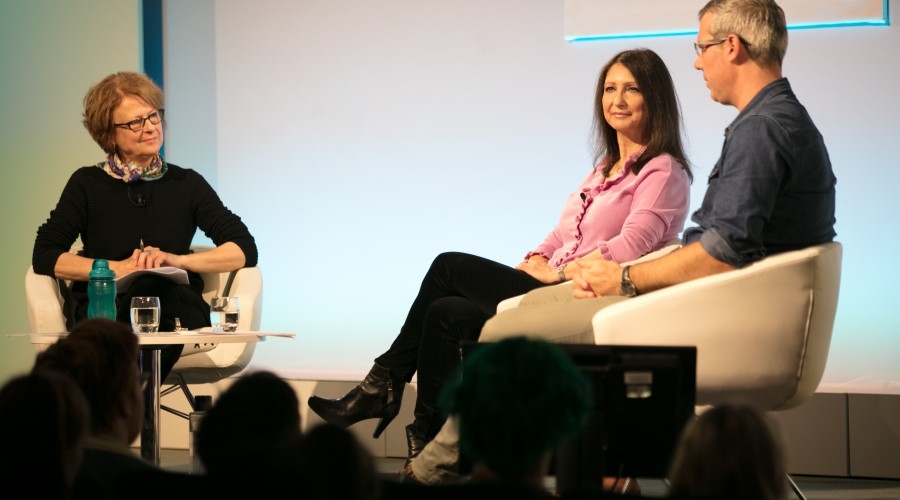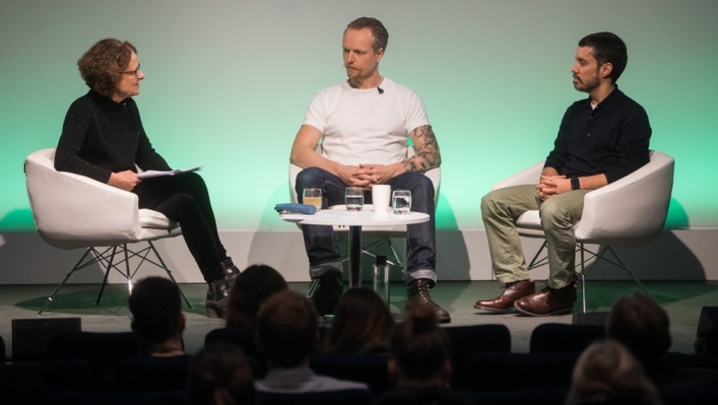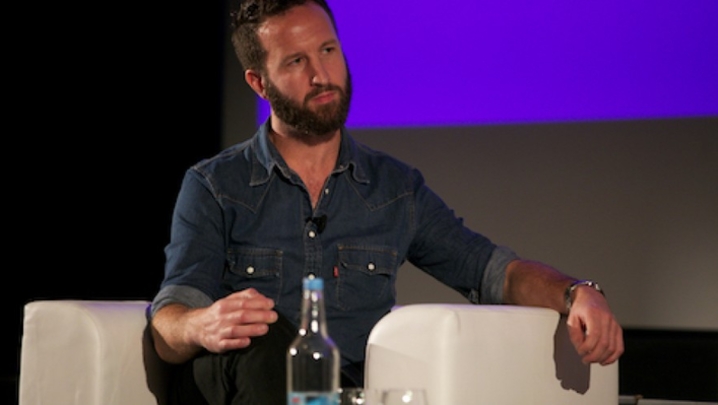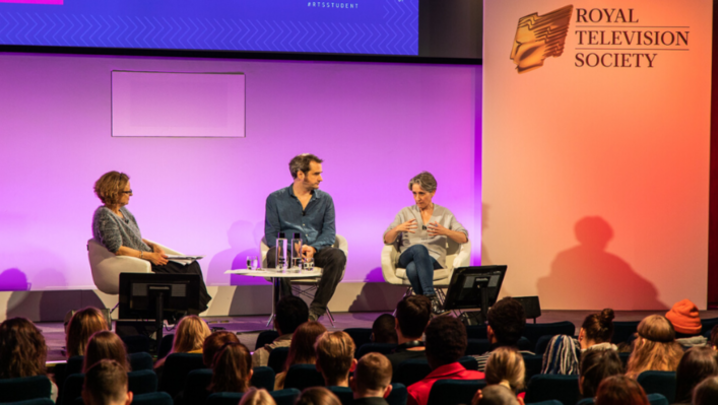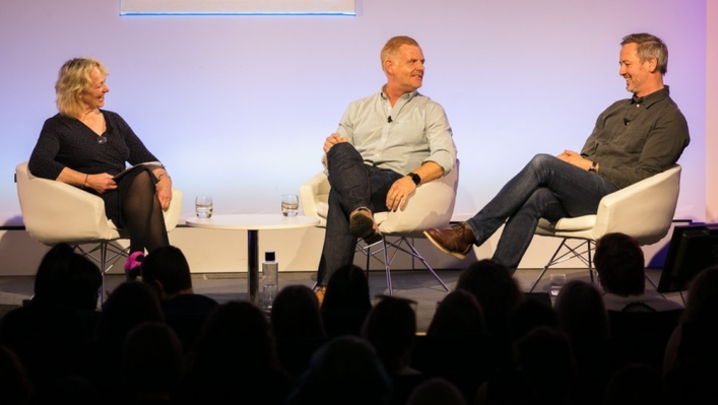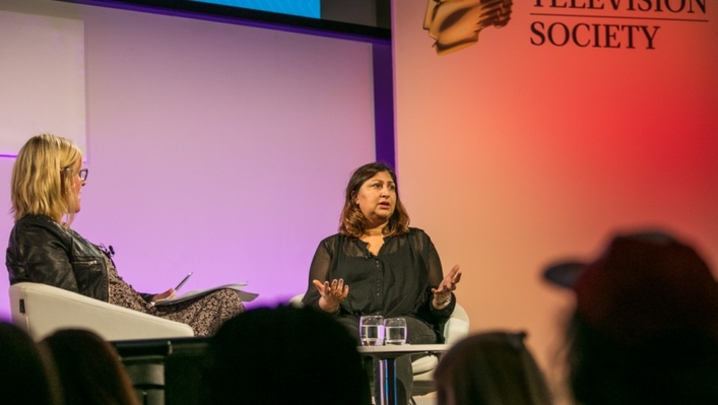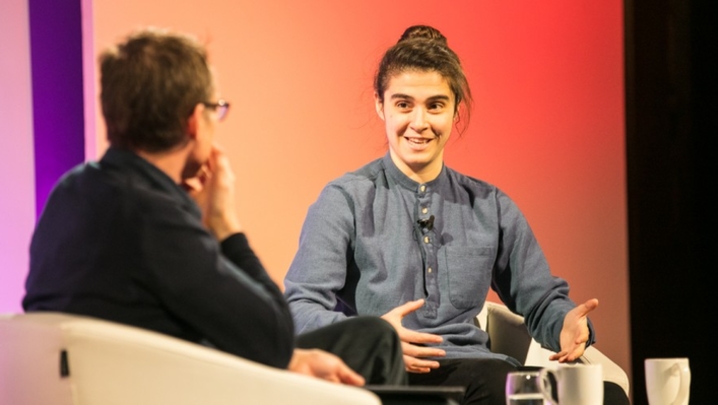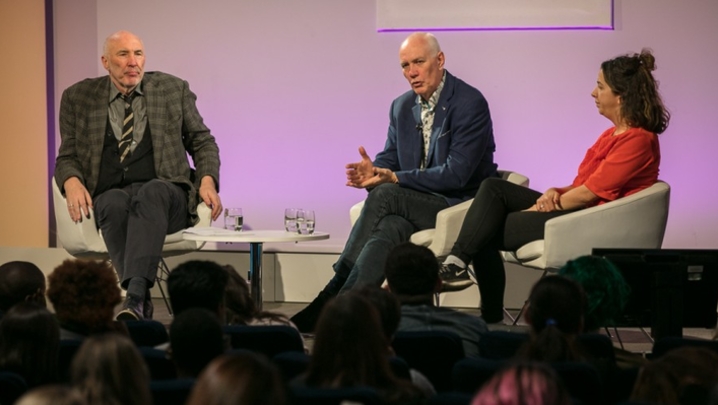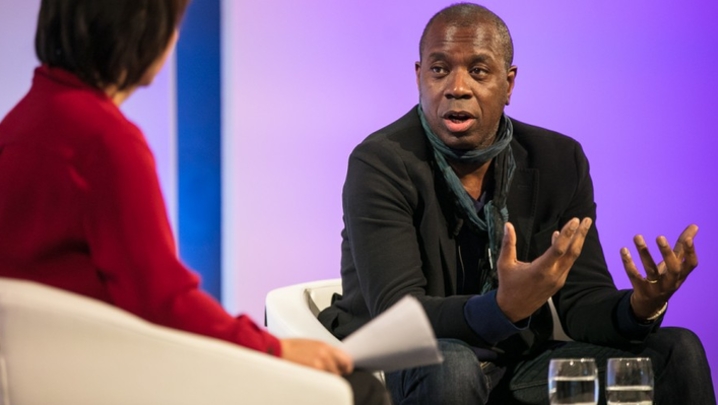Film and TV Editors Pia Di Ciaula and Rick Barker discuss editing drama and factual TV in this year's RTS student masterclass.
Is there a difference between editing TV drama and feature films?
Pia Di Ciaula, film and TV editor specialising in drama: “On The Crown there is no difference because Stephen Daldry (the director) and I treat every episode like a feature film, but prior to that there was a big difference.
“I moved to the UK (from North America) so I could edit independent films with the best directors and actors in the world.
“Actors don’t have to be as gorgeous and as talented as Hugh Grant (she edited BBC 1’s A Very English Scandal) although I could edit him for ever, but here in the UK actors are theatre trained.
“They have a great command of the English language, of Shakespeare and drama so they translate well into film."
Does sexism still exist in the edit suite?
Pia Di Ciaula: “When I started as a clapper loader it was very sexist…Both genders bring a sensibility so you have to be sensitive to the material. If they’re passionate enough, anyone can edit…
“Don’t let gender hold your back, be passionate, determined and work very hard. That’s the key. “
Rick Barker, film and TV editor specialising in factual: “Way over half the producers and directors I work with are women. Most of the executive producers and commissioning editors are women.
“Maybe that’s because of the shows I work on. Editing is not something that should in any way be defined by gender but rather a desire to tell good stories well.”
Editing demands total commitment.
Pia Di Ciaula: “I am very passionate and work long hours. Stephen Daldry shoots a lot of material.
“He expects me to send him assemblies at the end of every day. I would get somewhere between two and a half to six hours of material every day. They couldn't be rough assemblies.
“They had to be tight and have a soundtrack. He doesn’t like looking at green screens so my assistant had to composite all those shots so it looked like a finessed show even though it was a first assembly.”
Rick Barker: “It can be fairly intense. Certainly the current affairs stuff that I’ve done, you find yourself in the edit suite occasionally having discussions at very late hours of the night whether or not a particular scene is working or if a producer or a journalist can write a very long piece of expository journalism over your beautifully crafted sequence.”
Who owns the edit suite?
Pia Di Ciaula: “I feel the editing department belongs to the director because we are trying to express his or her vision. Directors are kind of possessive of the editing. Sometimes they allow producers to watch assemblies but they don’t want any comments because they don’t want to be biased by early comments.
“They need to be free and shoot and explore and experiment. They then invite conversation. I’ve worked with some directors who won’t allow anyone to see anything until they have a director’s cut.
“Nowadays people are more open and collaborative. They will show cuts but they don’t want feedback.”
Rick Barker: “In factual we don’t have quite the same relationship (the producer and director are often the same person). I think it’s important that the edit suite is the editor’s.
“We don’t have that layering that people who work in drama do. I almost went through a stage of talking to directors, asking them which shot they found hardest to get and then deliberately not putting it in.
“My thinking was ‘This needs to be what is best for the film.’ Editing in factual you’re there to bring a fresh pair of eyes and it’s unscripted. It’s your job to try and find the story within the rushes.”

